Showing 41 to 50 of 259 results
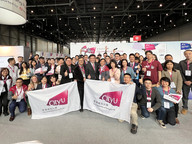
Researchers from City University of Hong Kong (CityU) received 36 awards, including one Special Prize, three Gold Medals with Congratulations of the Jury, 17 Gold Medals, nine Silver Medals and six Bronze Medals at the 48th International Exhibition of Inventions Geneva (IEIG) held from 26 to 30 April.
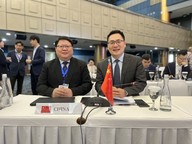
The State Key Laboratory of Marine Pollution (SKLMP) of City University of Hong Kong (CityU) received approval from the UNESCO Intergovernmental Oceanographic Commission (IOC) Sub-Commission for the Western Pacific (WESTPAC) to establish the first UNESCO regional training and research Centre (the Coastal-COMMIT Centre, also known as the “Centre”) on coastal contaminant monitoring and marine innovative technologies in Hong Kong for the Western Pacific region.
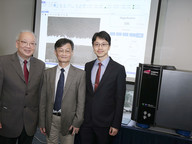
A research team at City University of Hong Kong (CityU) is pioneering advanced technology for the next-generation self-design and manufacture of electron microscopes (EMs). CityU is the first university in the world to achieve this.
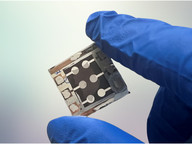
Perovskite solar cells (PSCs) are considered a promising candidate for next-generation photovoltaic technology with high efficiency and low production cost, potentially revolutionizing the renewable energy industry. However, the existing layer-by-layer manufacturing process presents challenges that have hindered the commercialisation of this technology.
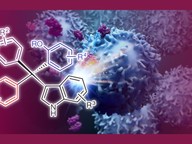
A research team co-led by chemists from City University of Hong Kong (CityU) recently discovered novel, highly effective anticancer agents with tridimensional structures, which have high anticancer activity, low toxicity and the ability to overcome drug resistance in cancer cells.
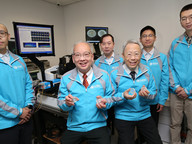
The future of wireless communications is set to take a giant leap with the advent of sixth-generation (6G) wireless technology. A research team at City University of Hong Kong (CityU) invented a groundbreaking tunable terahertz (THz) meta-device that can control the radiation direction and coverage area of THz beams.
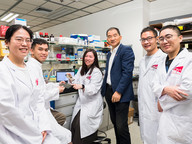
Cancer metastasis is a major cause of cancer-related death. A research team at City University of Hong Kong (CityU) recently identified a protein that triggers the migration of liver and pancreatic cancer cells and metastasis, and is correlated with shortening the survival time of patients.

Existing colour systems, such as RGB and CYMK, are all text-based and require a large range of values to represent different colours, making them difficult to compute and time-consuming to convert. Recently, researchers from City University of Hong Kong (CityU) made a breakthrough by inventing an innovative colour system......
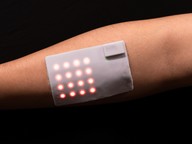
A research team led by City University of Hong Kong (CityU) recently developed a wireless, soft e-skin that can both detect and deliver the sense of touch, and form a touch network allowing one-to-multiuser interaction. It offers great potential for enhancing the immersion of distance touch communication.
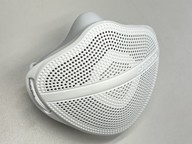
A research team at City University of Hong Kong (CityU) successfully engineered a breath-to-charge electrostatic face mask that can “self-charge” through the user’s breathing and continuously replenish its electrostatic charge as the user wears and breathes through the mask.